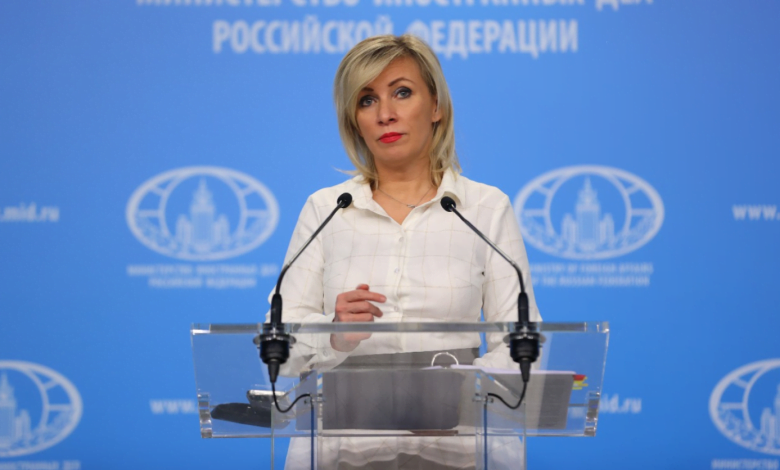
Russian MFA Accuses ODIHR of Planning to “Heat Up” Situation in Georgia on the Eve of Elections
Russian Foreign Ministry spokeswoman Maria Zakharova echoed the Russian Foreign Intelligence Service’s (SVR) accusations that the U.S. is planning to “interfere” in Georgia’s elections using the OSCE Office for Democratic Institutions and Human Rights (ODIHR), and accused ODIHR of planning to “heat up the situation in Georgia before the elections.” As an alternative, she speaks about the practice of “sending Russian observers to the ODIHR missions at the request of friendly countries.”
In her response to “a media inquiry regarding the intentions of the United States to use ODIHR to interfere in the elections in Georgia” dated September 12, Zakharova claims that if the Georgian elections’ “are not favorable to the West, the Bureau’s [OSCE/ODIHR] conclusions might become a pretext for protests and attempts to challenge the results, possibly leading to another “color revolution.”
In her official comment she shifts focus from SVR’s emphasis on the United States to the “collective West,” accusing the ODIHR of being “an instrument of the “collective West” for aggressive interference in the internal affairs of sovereign states, primarily through the mechanism of international election monitoring.” She also claims the ODIHR “fulfills the political orders given to it and provides the conclusions and findings that its sponsors expect.”
She claims that “One of the ways to put pressure on the authorities is the publication of “interim reports” with assessments of the pre-election situation, which appear, as a rule, two weeks before election day.” She also alleges that the reports are “prepared by a small group of hired persons who bear no responsibility for their actions” and that “The result is not a reflection of the real state of affairs in this or that country, but an essay on a theme set by the customer…”
Stemming from that Zakharova notes: “As long as the Bureau’s conclusions and statements remain biased and prejudiced, the best approach is to ignore them. International observer obligations can be fulfilled without involving ODIHR. ” She adds: “As practice has shown, elections can proceed perfectly well without it, and the trust of voters in the results—precisely why observers are invited—will not be harmed. The legitimacy of elections is determined by the will of the voters and nothing else, not by ODIHR’s assessments.”
According to her, “at the request of friendly countries, we sometimes send Russian experts to ODIHR missions. We do this to monitor the voting process directly, to counteract the excesses of the West, to obtain an adequate picture of what is happening, and also to significantly mitigate the potential for pressure on local authorities (primarily electoral commissions) and prevent manipulations with statistical data.”
Also Read:
This post is also available in: ქართული Русский